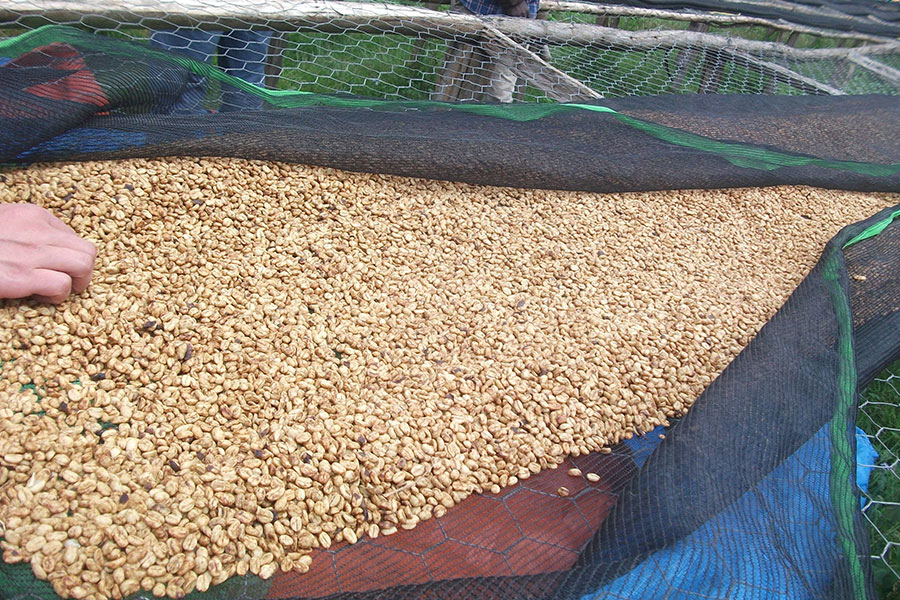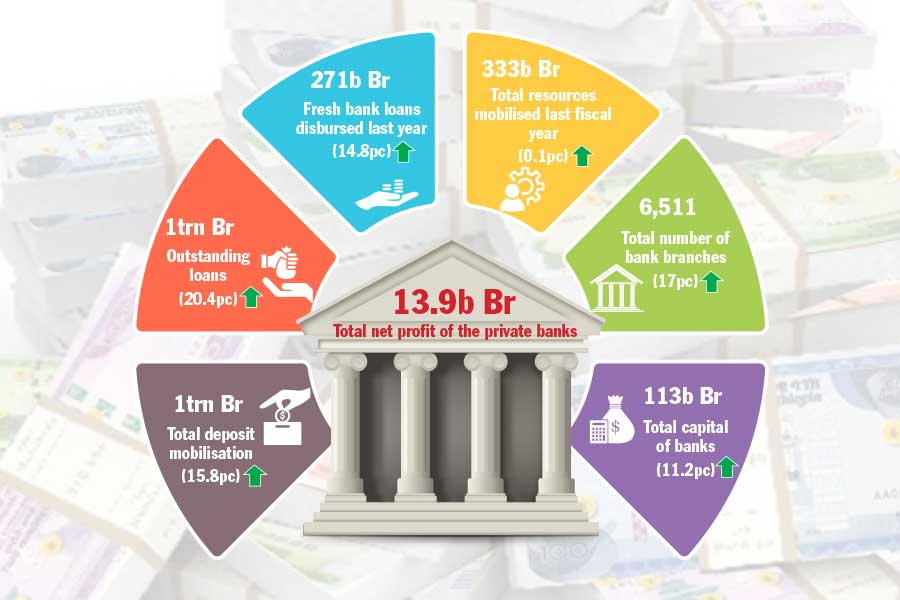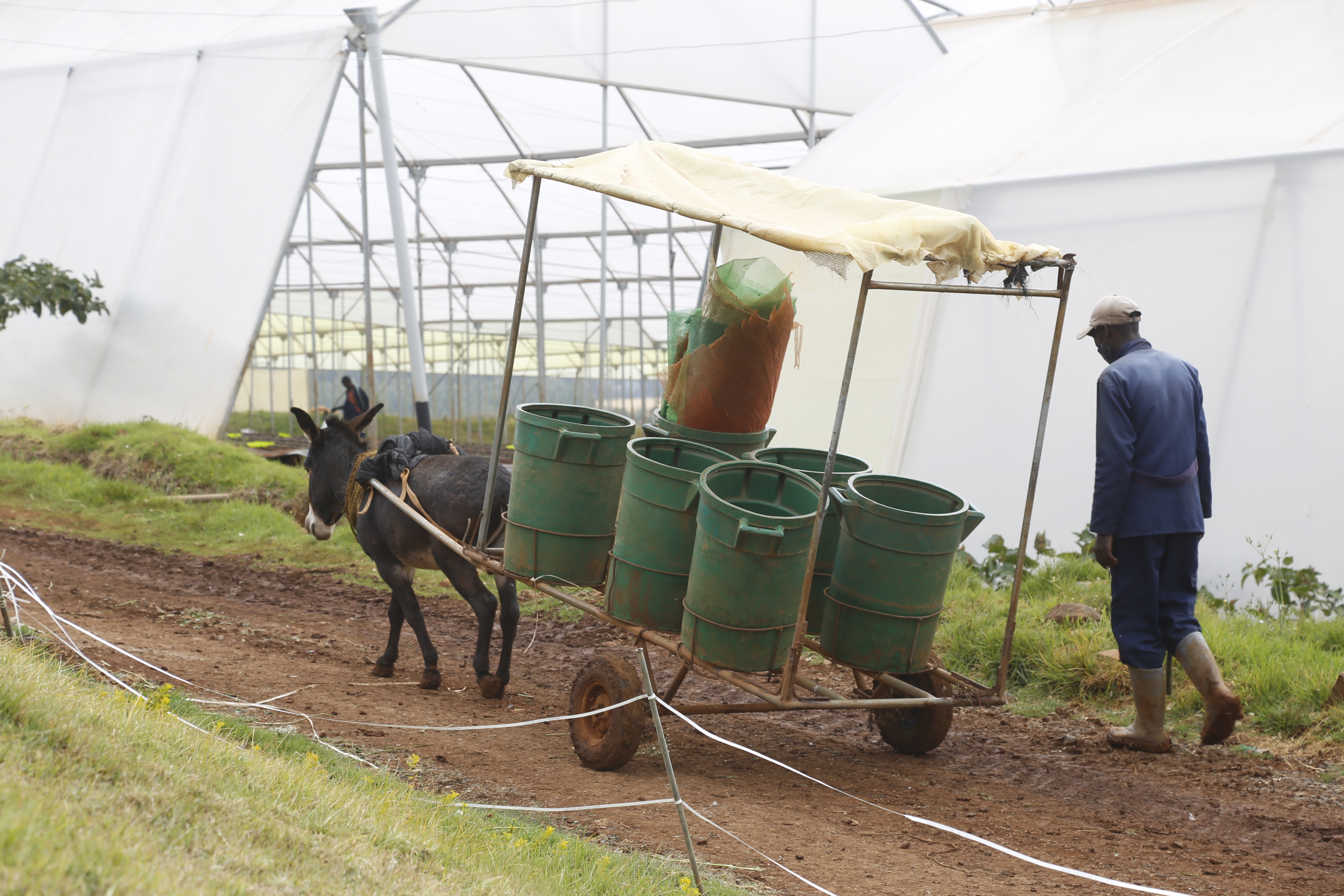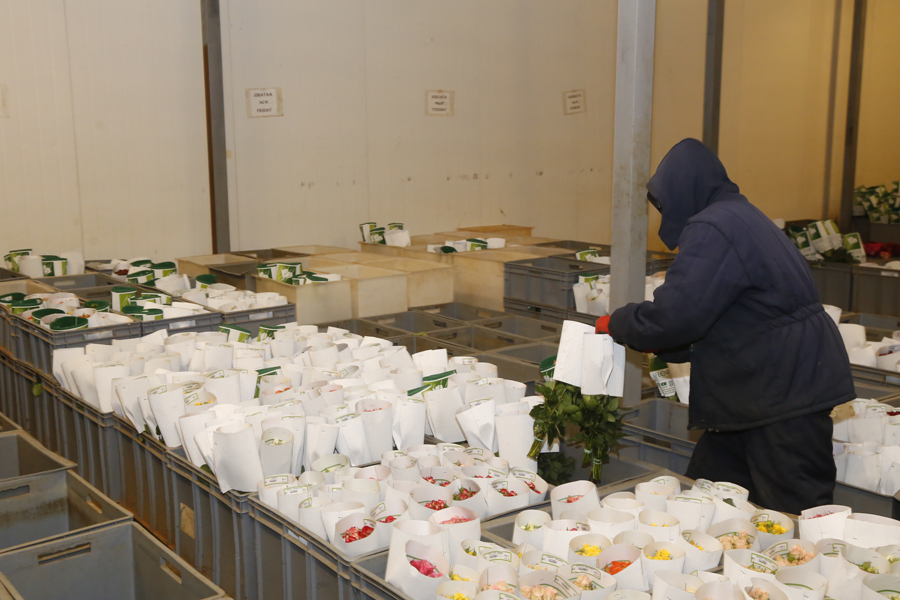
Featured | Apr 22,2022
On the Ethiopian New Year holiday, I woke up to the sound of damsels singing "Abebayehosh" at the top of their lungs backed by a traditional drum made of animal hides stretched over a wooden or metallic cone (Kebero).
For me, the season is a time of renewal and celebration with the fields and meadows lush and green while the air is filled with the sweet scent of flowers. It is a time to celebrate the past and look forward to the future.
Marking the end of the rainy season and the beginning of spring is a reminder that there is a bright future following a challenging period.
The blooming of the mystical yellow flower (Adey Abeba) serves as a symbol of hope and new beginnings while the rare white bird (YeMeskel Wef) that is said to appear as the rainy season ends resonates with good luck and prosperity.
The renowned artist and poet, Gebrekristos Desta even penned a one-verse poem about the two offerings, suggesting that the flower and bird that appear together in September may have a yearly date set up.
“If Meskel bird and the Adey Flower
Have a date, come September,
Who Knows?”
The vibrant energy of the young girls with their voices reverberating through the walls of the house reminded me of my childhood days when similar performances used to take place on the grass-strewn floor of our living room.
The song begins with the soprano girl greeting the matriarch and patriarch of the household while the orchestra cheer behind her. The lyrics oscillating between rural and urban sentimental life's chores and mysticism filling the air never cease to amaze me.
She calls out to her friends to help her build a house, depicting that she has no fence let alone a house and spends her nights counting the stars while her stepmother scolds her upon return. The girl continues telling of her woes, including being struck by a guide used to mount cooking pots for offering a male figure a bean stew and requests to summon her mother, who proves to be her medicine.
All stanzas end with the girls beckoning the yellow eight-petal seasonal daisy to roll like a money chest, as a beautiful ending to the deliberate absurdity with a well-wish for the coming season.
The self-made holiday musical troupe went from one home to the other until late afternoon, bringing bliss and gratitude. Meanwhile, young boys celebrate by presenting their sketches, featuring anything from flowers to angels and famous football players. These boys use a master sketch, carefully duplicating it with carbon copies and then colouring them in with bright, vivid pigments.
Some resort to using flower pigments when they cannot find any crayons or watercolours, which add a touch of authenticity. The slight smudges of paint left on the paper from their fingertips as they worked to perfect their art never failed to leave me flattered. Similar to the girls, they also receive a small reward for their artwork where they might be requested for multiple sketches, running out of stock quickly.
The feeling goes beyond the financial reward to the freedom to celebrate and spread joy with perfect strangers.
Although the urban lifestyle has changed some details over the years, much of the festivity stayed similar to my nostalgic memories.
The vast expanse of green embroidered with flowers stretches from Sost Kutir Mazoria to the Lideta and Sar Bet areas draped in beautiful meadows giving off a postcard-like view.
Daredevil youngsters would risk it all to sneak through the fences to a forbidden paradise where old helicopters and fighter jets lay dormant. The old airport field was a green oasis in the concrete jungle of Addis Abeba, a lung to the city, like the Amazon to the world. The military compound was sparsely manned while the tall grass camouflaged the kids, with the adventure usually ending in success.
The beauty is not only in the natural environment. People are adorned with traditional hand-woven cotton cloth with meticulously designed embroidery reserved in the wardrobes for occasions.
The clothes market is busy as people go searching in the boutiques for brand-new clothing and footwear. It is common to hear the blaring sound from vehicles commissioned to sell a specific product, with an announcer adding to the already existing noise pollution.
Likewise, the atmosphere is no less vibrant in the cattle market, with chaos ensuing with everyone trying to strike a bargain on the eve of the New Year. The pen has been emptied from its occupants as herds of cattle, sheep and goats storm the streets, which become the makeshift markets.
The hullabaloo will not abate until well into the wee hours of the evening when everyone retires to their abode for a last-ditch preparation before New Year's Day break ensues. The chaotic and comical events are portrayed in the late Mesfin HabteMariam's famous essay titled Awdeamet which translates to Holiday. In his voice-recorded narration, Mesfin takes us onboard an old public bus and inside a lady's shopping bag where the sound of a cock’s crow is heard much to the amusement of passengers.
A peek into the bag reveals its neck twisted in an awkward manner while the legs are firmly tied amid grain and vegetable staff to the brim. The ironically funny feature depicts the lady acting like nothing unusual happened where even a cock within a shopping bag seems normal amidst the hustle and bustle of festivities.
As the evening approaches, people build their bonfires and gather around a party.
Groups of adults hold on to the bundle of wood circling the bonfire where dancing and joyous celebration will continue throughout the evening while generous helpings from the tasty bread along with honey wine and barley-based alcoholic drinks are served.
The celebrations reflect a time of the year when kindness is in abundance as a popular English adaptation of a famous folk poem depicts that even strangers greet each other during the season. Managing to follow it throughout the year serves us well.
"When September comes and Adey Abeba blooms fully,
People greet strangers and their relatives equally.”
PUBLISHED ON
Sep 16,2023 [ VOL
24 , NO
1220]


Featured | Apr 22,2022

Fortune News | Jul 09,2022

Featured | Jan 05,2020

Commentaries | Dec 04,2021

Fortune News | Feb 06,2021

Commentaries | Jan 27,2024

Commentaries | Sep 27,2025

Fortune News | Mar 02,2024

Fortune News | Jul 08,2023

Fortune News | Sep 09,2023

Dec 22 , 2024 . By TIZITA SHEWAFERAW
Charged with transforming colossal state-owned enterprises into modern and competitiv...

Aug 18 , 2024 . By AKSAH ITALO
Although predictable Yonas Zerihun's job in the ride-hailing service is not immune to...

Jul 28 , 2024 . By TIZITA SHEWAFERAW
Unhabitual, perhaps too many, Samuel Gebreyohannes, 38, used to occasionally enjoy a couple of beers at breakfast. However, he recently swit...

Jul 13 , 2024 . By AKSAH ITALO
Investors who rely on tractors, trucks, and field vehicles for commuting, transporting commodities, and f...

Oct 18 , 2025
The political establishment, notably the ruling party and its top brass, has become p...

Oct 11 , 2025
Ladislas Farago, a roving Associated Press (AP) correspondent, arrived in Ethiopia in...

Oct 4 , 2025
Eyob Tekalegn (PhD) had been in the Governor's chair for only weeks when, on Septembe...

Sep 27 , 2025
Four years into an experiment with “shock therapy” in education, the national moo...